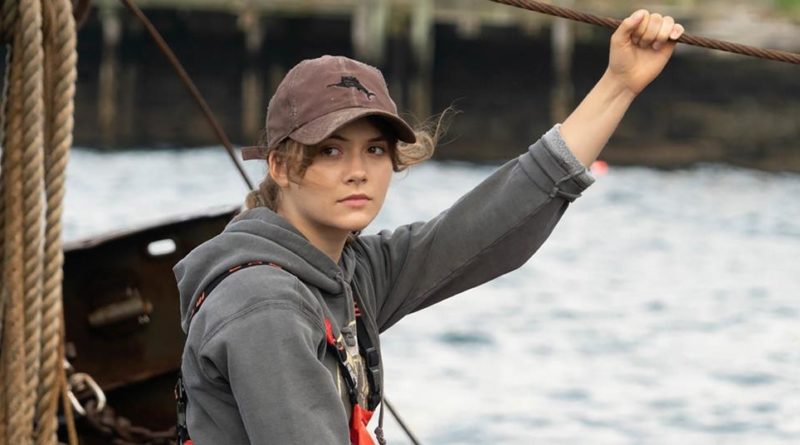‘CODA’ Review: Really???
Name this movie: a high school student, in their senior year, finds themselves at a crossroads. On one hand they are pressured by their family into one kinds of life, but what they really want to do is sing, which is something their family doesn’t approve of or understand. However with the power of friendship, family, and music, they are able to have their cake and eat it too in a win-win for everyone.
While that could’ve been High School Musical or a litany of other made-for-TV movies, that is also the premise of Academy Award for Best Picture winner CODA. CODA is a fine film, of much higher quality than the standard feel-good Disney Channel gloop, but will get a whole lot of extra flack from me thanks to its baffling best picture win.
CODA, standing for Children of Deaf Adults, follows the story of Ruby (Emilia Jones), the only hearing member of her otherwise deaf fisherman family, who spends her senior year of high school torn between helping their struggling family business and pursuing her dreams of going to Berkley College of Music. Add in a high school crush and a stereotypically tough-but-fair eccentric music teacher and you can pretty much guess the plot of the entire movie beat-for-beat. The movie is so extremely predictable, that it skirts the line of being boring at times, as it does little to surprise.
The main reason to watch, rather than the story itself, is the performances of the deaf actors, Troy Kotsur, Marlee Matlin, and Daniel Durant as Ruby’s family, as well as the look into the lives of deaf people that is generally not seen by the wider public. All three do well, especially Academy Award winner Troy Kotsur as Ruby’s crotchety father figure with a heart of gold, a supporting character archetype that the Academy likes to give awards to as evinced by others like Alan Arkin in Little Miss Sunshine or Sean Connery in The Untouchables. Their interactions with each other and Ruby, as well as the many small domestic moments, give a rarely seen view into deaf life that, while obviously fictionalized to some degree, is illuminating nonetheless.
Technically, the film is solid with competent editing and sound. The cinematography has a certain artlessness to it, that gives the whole affair a made-for-TV feeling. It felt strange watching CODA in a movie theater, where the big screen only maximizes how dull the films looks, knowing that more elegantly photographed movies like The Power of the Dog were stuck being watched on laptops, phones, and TV sets.
While I cannot stress enough how rote the movie feels, there are a pair of scenes, one right after the other, that do offer something a little more than just paint-by-numbers storytelling. Ruby, at the end of her school year, performs a duet of “You’re All I Need to Get By” with her crush at the school’s year-end concert. However rather than hear the song, the sound fades out and we are given the performance from her family’s perspective. Unable to share in the experience with the rest of the audience, they sit and watch, and measure people’s reactions. It’s quite well done and brings some much needed pathos to her family. In the following scene, Ruby’s dad asks her to sing the song once again for him, and he puts his hands on her throat to feel the vibrations of her voice. These two scenes are pretty much the only reason to see this movie, and what save it from being entirely forgettable.
Why CODA was selected as the Best Picture of 2021 remains a mystery to me, and seeing the movie has only muddied the water as to what the answer truly is. I can’t help but wonder how this will compare to other winners of years’ past. Will it be remembered like Parasite, as the underdog that reminded voters and viewers what the possibilities of cinema truly were? Or will it be remembered like Crash, a so-so movie that surprised everyone by winning and then was instantly forgotten? Who knows.




